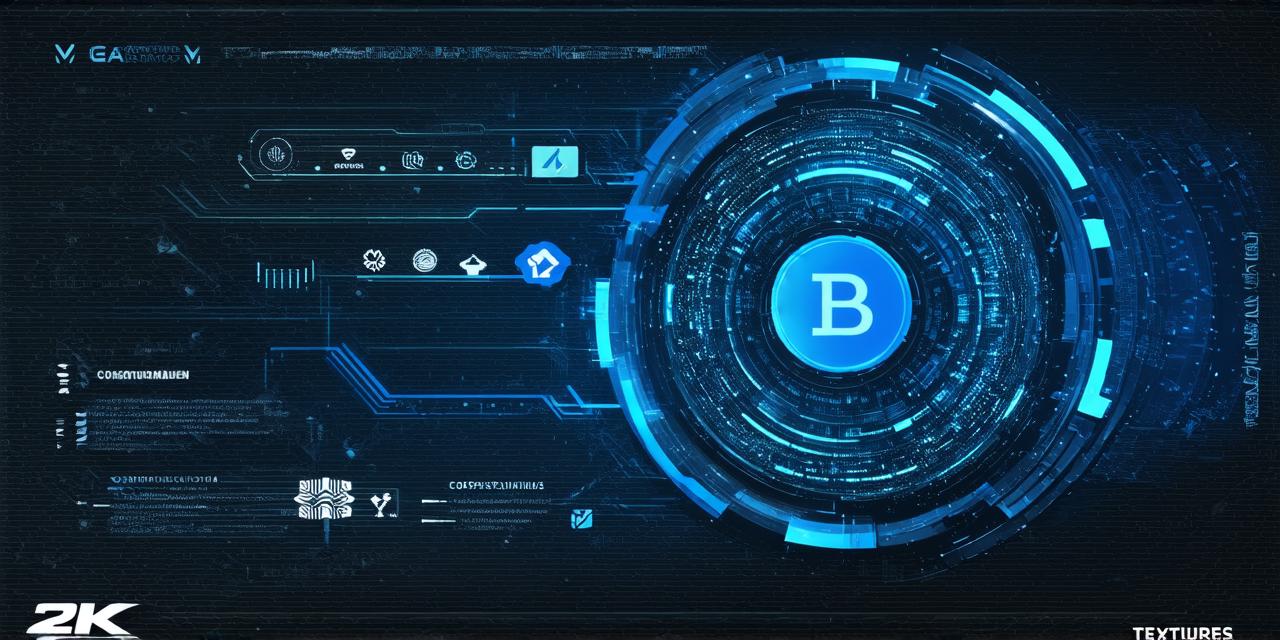Blockchain technology has taken on the world by storm since its inception, and it’s not surprising that many organizations are now looking to implement this innovative technology in their operations. While a public blockchain like Bitcoin or Ethereum may be suitable for some applications, consortium blockchain offers several advantages that make it an attractive option for businesses that need more control over their data and want to keep sensitive information private.
What is Consortium Blockchain?
Consortium blockchain is a type of private or permissioned blockchain where multiple organizations work together to validate transactions, maintain the network, and ensure the integrity of the data stored on it. Unlike public blockchains, which are open to everyone and operate on a decentralized model, consortium blockchain allows for greater control over who can participate in the network and what data is shared.
Key Features of Consortium Blockchain
There are several key features that set consortium blockchain apart from other types of blockchain:
- Permissioned network: In a consortium blockchain, only authorized organizations are allowed to participate in the network. This ensures that sensitive information is kept private and reduces the risk of fraud or unauthorized access.
- Decentralized governance: While there is no central authority controlling the network, each participating organization has a say in how the network operates and what data is shared. This allows for greater transparency and accountability.
- Customizable architecture: Consortium blockchain can be tailored to meet the specific needs of individual organizations, with custom rules and consensus mechanisms that reflect the unique requirements of each business.
- Smart contracts: Similar to public blockchains, consortium blockchain can be programmed with smart contracts that automatically execute transactions based on pre-defined conditions. This eliminates the need for intermediaries and speeds up processes.
- Immutable data: All data stored on a consortium blockchain is immutable, meaning it cannot be altered or deleted once it has been recorded. This ensures the integrity of the data and prevents fraud.
Benefits of Consortium Blockchain
There are several benefits to using consortium blockchain for business operations:
- Improved security: By limiting participation in the network to authorized organizations, consortium blockchain reduces the risk of fraud or unauthorized access to sensitive data.
- Faster transaction speeds: Consortium blockchain allows for faster transaction speeds compared to public blockchains due to its permissioned model and customizable architecture.
- Enhanced transparency: By allowing all participating organizations to have a say in how the network operates, consortium blockchain promotes greater transparency and accountability.
- Reduced costs: Consortium blockchain eliminates the need for intermediaries, which can significantly reduce transaction costs.
- Scalability: Consortium blockchain is highly scalable and can accommodate large numbers of participating organizations without compromising performance.
Real-Life Examples of Consortium Blockchain in Action
There are several real-life examples of consortium blockchain in action, including:
- Maersk and IBM’s TradeLens: In 2018, Maersk and IBM announced a partnership to develop a consortium blockchain platform called TradeLens. The platform is designed to improve the efficiency and transparency of global trade by providing real-time visibility into shipments and reducing fraud.
- Walmart’s Food Traceability Initiative: In 2018, Walmart launched its Food Traceability Initiative, which uses a consortium blockchain to track the origin and movement of food products through the supply chain. The initiative aims to improve food safety by providing consumers with information about the source and quality of the food they are buying.
- HCL Technologies’ Healthcare Blockchain: In 2019, HCL Technologies developed a consortium blockchain platform for healthcare that allows patients to securely store and share their medical records with authorized providers. The platform also enables interoperability between different healthcare systems, improving patient outcomes.
FAQs
Here are some frequently asked questions about consortium blockchain:
1. Is consortium blockchain the same as private blockchain?
No, consortium blockchain is a subset of private blockchain where multiple organizations work together to validate transactions and maintain the network.
2. What are the main differences between public and consortium blockchain?
The main differences between public and consortium blockchain include control over participation, governance, scalability, and transaction speeds.
3. What industries use consortium blockchain?
Consortium blockchain is used in various industries, including finance, healthcare, supply chain management, and manufacturing. It allows organizations to improve security, reduce costs, increase efficiency, and enhance transparency in their operations.
4. Can consortium blockchain be hacked?
While it’s highly unlikely that a consortium blockchain can be hacked due to its permissioned model and customizable architecture, no blockchain is completely immune to attacks. It’s important to implement strong security measures, such as encryption and access controls, to protect the network from potential threats.

5. How do I implement consortium blockchain for my business?
Implementing consortium blockchain requires a thorough understanding of the technology and its benefits. You’ll need to identify the key requirements of your business, select a suitable platform, and develop a custom architecture that reflects the unique needs of your organization. Additionally, you’ll need to establish governance rules and consensus mechanisms that ensure transparency and accountability.
Conclusion
Consortium blockchain is an innovative technology that offers several advantages over public blockchains for businesses that need more control over their data and want to keep sensitive information private. By limiting participation in the network, consortium blockchain ensures that sensitive data is kept confidential and reduces the risk of fraud or unauthorized access. Additionally, consortium blockchain offers faster transaction speeds, higher scalability, and improved security compared to public blockchains. With its permissioned model and customizable architecture, consortium blockchain can be tailored to meet the specific needs of individual organizations, making it an attractive option for businesses in various industries.
